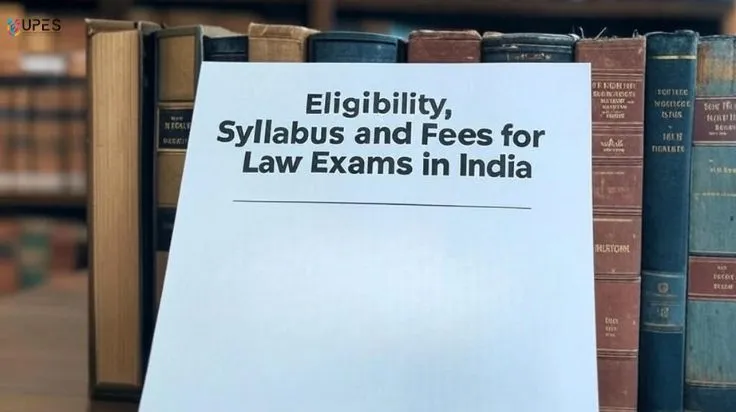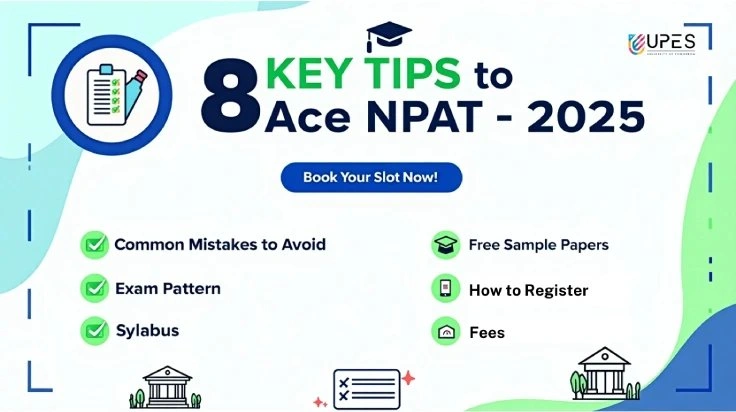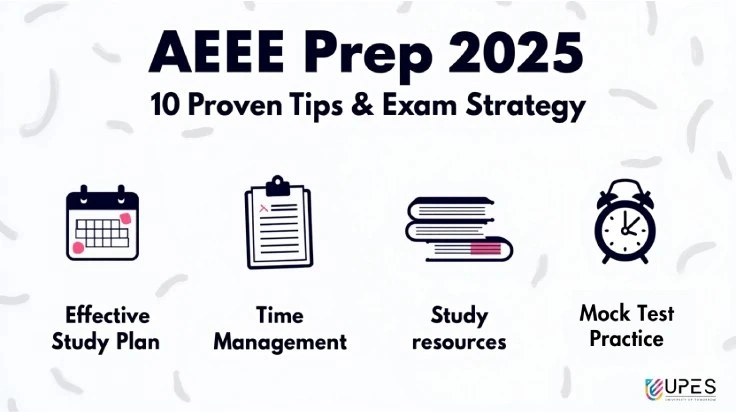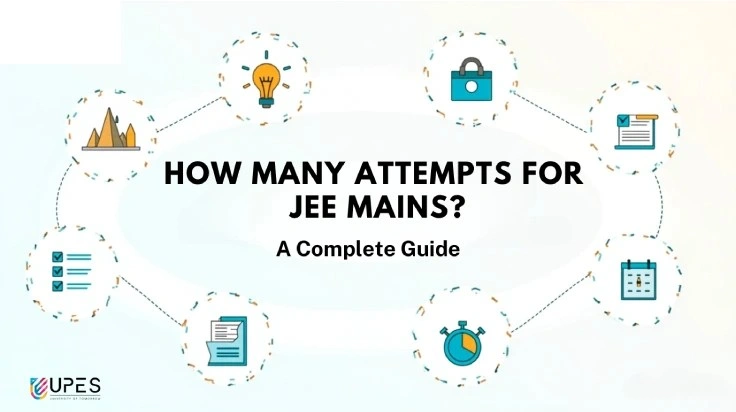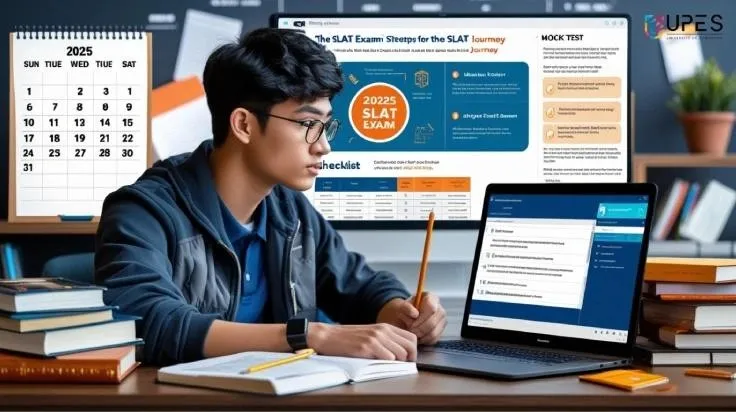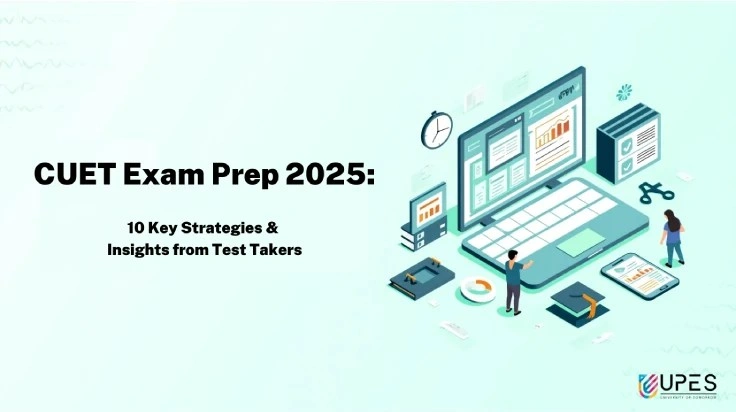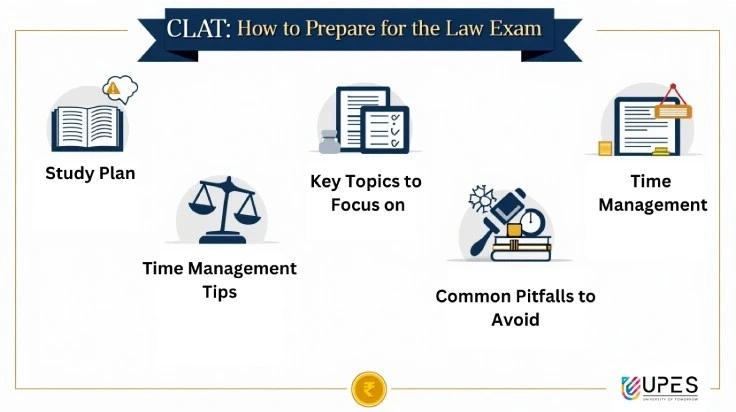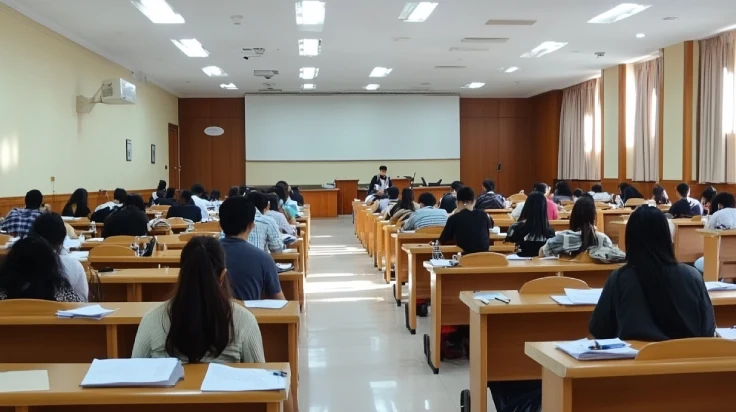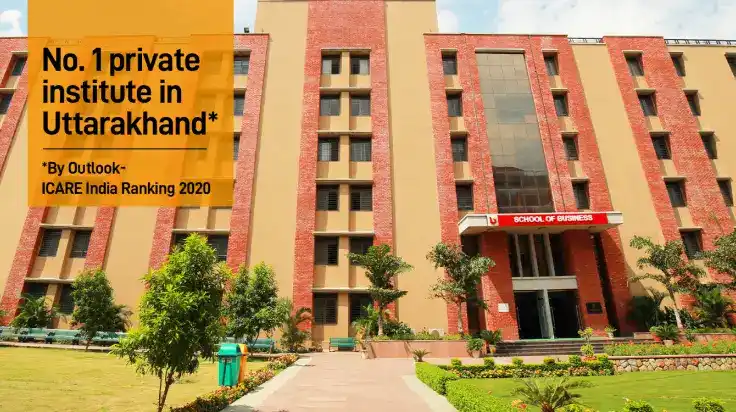Best CLAT Books & Study Resources
- UPES Editorial Team
- Published 28/01/2025
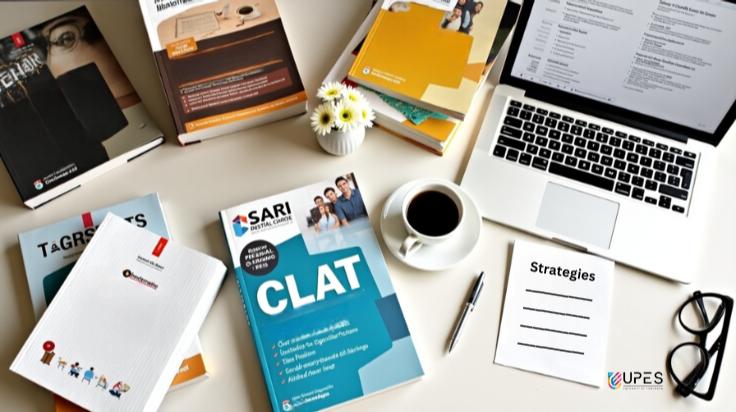
Table of Contents:
Preparing for the Common Law Admission Test (CLAT) is a crucial step for aspiring lawyers aiming to secure admission to premier law schools in India. Whether you're planning to pursue a BA LLB (Hons) or BBA LLB (Hons) from prestigious institutions like UPES School of Law the right study resources can make all the difference. This blog provides a comprehensive list of the best CLAT books and study resources to guide you on how to prepare for CLAT effectively.
Why Choose the Right CLAT Books?
The CLAT exam evaluates your proficiency in various sections like English, Logical Reasoning, Legal Aptitude, Current Affairs, and Quantitative Techniques. Using reliable books for preparation ensures that you have in-depth material tailored to the CLAT syllabus, making your study structured and efficient.
Top CLAT Books for Beginners and Advanced Preparation
The resources you refer to make a lot of difference! The right CLAT books can increase your chances of cracking the exams, while the wrong ones will only waste your precious time and energy. To help you avoid doing that, we bring to you a list of the best CLAT Books for beginners for CLAT Exam:
1. English Language and Comprehension
- Word Power Made Easy by Norman Lewis: Perfect for building a strong vocabulary.
- High School English Grammar & Composition by Wren & Martin: Essential for mastering grammar basics.
- Objective General English by SP Bakshi: Great for practicing comprehension and grammar.
2. Legal Aptitude
- Legal Awareness and Legal Reasoning by AP Bhardwaj: A must-have for understanding legal concepts.
- Universal’s Guide to CLAT & LLB Entrance Examination: Comprehensive coverage of past year questions and legal aptitude.
3. Logical Reasoning
- Analytical Reasoning by MK Pandey: Best for practicing reasoning questions.
- A Modern Approach to Logical Reasoning by RS Aggarwal: Widely recommended for logical puzzles and reasoning.
4. Current Affairs & General Knowledge
- Manorama Yearbook: An excellent resource for general awareness.
- Lucent’s General Knowledge: Compact and easy to revise.
- Daily newspapers like The Hindu or Indian Express: Crucial for staying updated on current affairs.
5. Quantitative Techniques
- Fast Track Objective Arithmetic by Rajesh Verma: Great for quick calculations and shortcuts.
- Quantitative Aptitude for Competitive Exams by RS Aggarwal: Covers all math topics in detail.
Those not in a condition to buy hardcopies of CLAT Books mentioned above, can always download Books PDF from reliable sources. Choosing the right CLAT Books can help you gain an edge over lakhs of applicants. Free Books are also available on the internet. Remember to not just study hard, but study smart!
Pattern of CLAT Exam
| Section | Number of Questions | Weightage |
| English Language | ~28-32 | 20% |
| Current Affairs, including General Knowledge | ~35-39 | 25% |
| Legal Reasoning | ~35-39 | 25% |
| Logical Reasoning | ~28-32 | 20% |
| Quantitative Techniques | ~13-17 | 10% |
The total number of questions is 120, and the exam duration is 2 hours. Each correct answer fetches 1 mark, and there is a negative marking of 0.25 for each incorrect answer.
CLAT Exam Preparation Strategy for Each Section
With the exam in near future, it can get quite daunting. To bring some respite to the troubled brains, here’s a section wise exam strategy to ease your exam preparation. Have a look:
1. English Language
- Focus Areas: Reading comprehension, vocabulary, grammar.
- Preparation Tips:
- Practice reading editorials and articles to enhance comprehension skills.
- Use books like Word Power Made Easy for vocabulary building.
- Solve previous year’s comprehension passages and grammar exercises.
- Strategy During Exam: Skim passages for key points and avoid spending too much time on a single question.
2. Current Affairs, including General Knowledge
- Focus Areas: Daily news, static GK, significant events.
- Preparation Tips:
- Read newspapers like The Hindu or Indian Express daily.
- Refer to Manorama Yearbook and Lucent’s General Knowledge for static GK.
- Keep track of important national and international events.
- Strategy During Exam: Attempt questions you are sure about and avoid guessing due to negative marking.
3. Legal Reasoning
- Focus Areas: Legal principles, their application, and critical thinking.
- Preparation Tips:
- Study books like Legal Awareness and Legal Reasoning by AP Bhardwaj.
- Practice solving principle-based questions.
- Understand basic legal terms and concepts.
- Strategy During Exam: Read questions carefully and focus on the logical application of principles rather than prior knowledge.
4. Logical Reasoning
- Focus Areas: Analytical and critical reasoning, puzzles, arguments.
- Preparation Tips:
- Solve puzzles and logical reasoning problems from books like A Modern Approach to Logical Reasoning by RS Aggarwal.
- Practice mock tests to improve speed and accuracy.
- Strategy During Exam: Identify easy questions first to maximize your score and revisit difficult ones if time permits.
5. Quantitative Techniques
- Focus Areas: Basic arithmetic, data interpretation, logical analysis.
- Preparation Tips:
- Focus on books like Fast Track Objective Arithmetic by Rajesh Verma.
- Practice questions on ratios, percentages, and time-speed-distance.
- Revise basic mathematical concepts from high school.
- Strategy During Exam: Attempt only those questions you are confident in to minimize negative marking.
Follow the above section-wise CLAT Exam preparation strategy for a wonderful performance. For a more nuanced and detailed strategy, click to refer to our blog “CLAT- How to Prepare for the Law Exam?”.
How to Prepare for CLAT Without Coaching
Many students wonder how to prepare for CLAT after 12th or without joining expensive coaching classes. Here’s a plan:
- Understand the Exam Pattern: Familiarize yourself with CLAT’s syllabus and format.
- Create a Study Plan: Allocate dedicated hours for each section.
- Practice Mock Tests: Use online platforms to take free mock tests and assess your preparation.
- Refer to CLAT Books PDFs: Many resources, including past year papers and summaries, are available online. Search for CLAT free books for additional material.
- Stay Consistent: Regular study and revision are key to success.
Benefits of Pursuing Law at UPES School of Law
The UPES School of Law is a top choice for students aspiring to build a successful career in law. Here are the key benefits:
1. Comprehensive Programs
UPES offers integrated law programs like BA LLB (Hons) and BBA LLB (Hons) that combine legal education with insights into arts, business, and management. This holistic approach equips students with interdisciplinary knowledge, a key advantage in today’s dynamic legal environment.
2. Specialized Curriculum
The curriculum at UPES is designed to provide in-depth knowledge of core legal subjects while integrating contemporary areas such as cyber law, intellectual property rights, and international law.
3. Moot Courts and Practical Exposure
UPES emphasizes experiential learning through moot courts, internships, and case study analyses. Students gain hands-on experience in real-world legal scenarios, preparing them for the challenges of legal practice.
4. Industry Partnerships
The university has collaborations with leading law firms and corporate houses, ensuring robust internship opportunities and placements.
5. State-of-the-Art Facilities
UPES offers a vibrant campus equipped with modern classrooms, libraries, and research centers, creating an ideal environment for legal education.
6. Global Recognition
With strong ties to international universities and exchange programs, UPES provides a global perspective to its students, helping them understand law from a global standpoint.
Conclusion
Preparing for CLAT requires a systematic approach, the right resources, and regular practice. By following the strategies outlined above and using recommended CLAT books for preparation, you can maximize your chances of success.
For those aspiring to study at top law schools like UPES School of Law, cracking the CLAT exam opens the door to a promising career in law. Start your journey today and make your dream a reality!
UPES Editorial Team
Written by the UPES Editorial Team
UPES Admission Enquiry
Subscribe to UPES Blogs
Join our community for exclusive stories, insights, and updates
By clicking the "Subscribe" button, I agree and accept the privacy policy of UPES.









